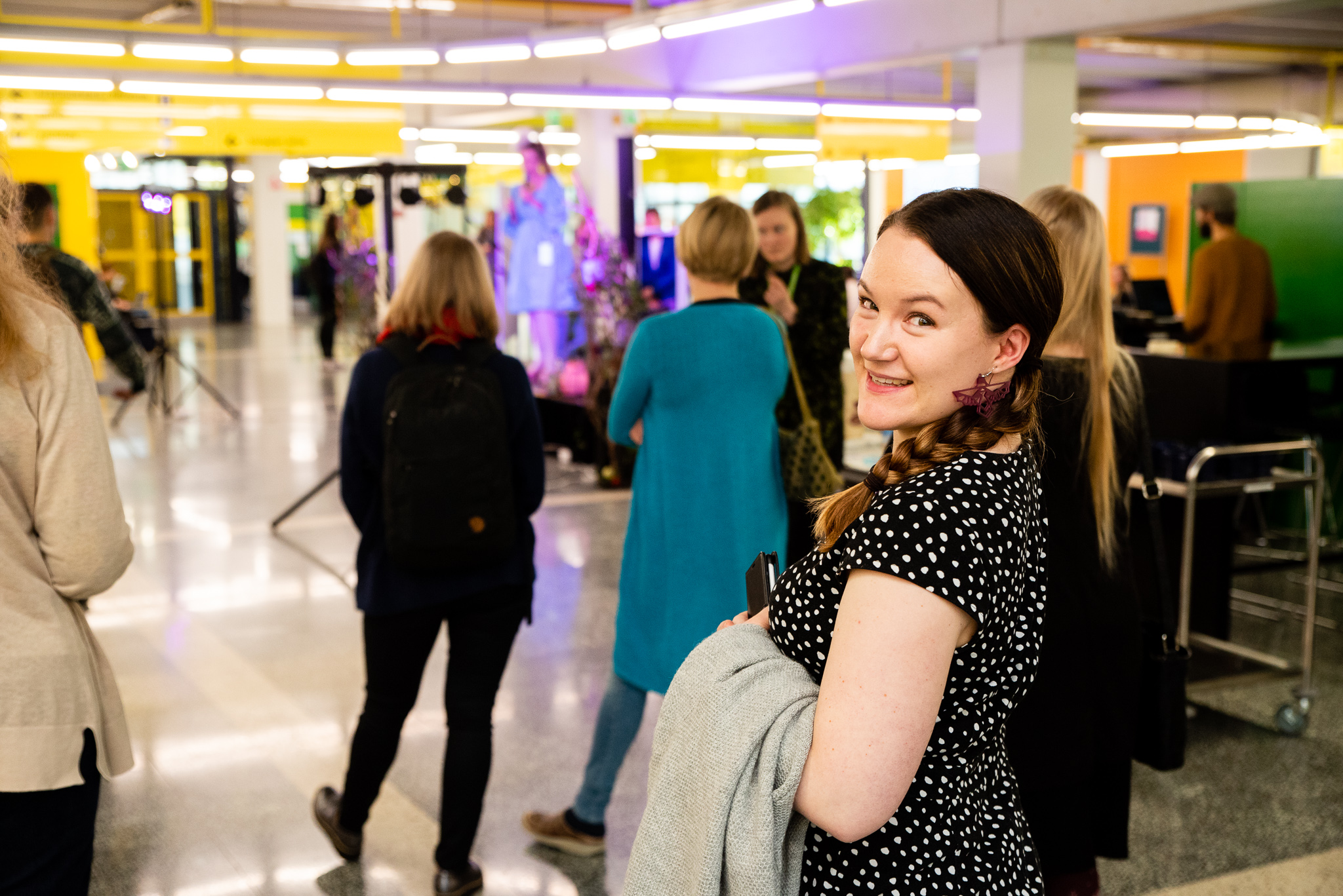Anni Huovinen is a project manager and planning officer for the university’s sustainability projects. The first of her kind, she explains her position to be a person dedicated to sustainability activities and public relations.
One of Huovinen’s tasks has been to design a sustainability website where different kinds of projects, research, and events are presented to the public. She has also invested in a campus-wide event: the Sustainable Development Week.
The idea for the week came from the Advisory Board of Sustainable Development. It was co-organized together with TellUs and the Student Union OYY. The purpose of the week was to raise awareness and to create a campus-wide discussion and an atmosphere towards sustainable development.
The university launched the Sustainable Development Week on October 7th to 9th, 2019. According to Huovinen, this was the first time that the university had a week focused entirely on sustainability.
“It’s a broad enough topic to easily have a sustainability month with events every day,” she comments.
The week-long event breathed life into the campus via a series of panel discussions, workshops, documentary viewing, and an NGO fair.
Anni Huovinen says the planning started back in April. There was no previous experience or structures, and they had a limited budget to work with.
In the end, the Week’s planning team incorporated various themes and perspectives into the schedule. For example, OYY proposed perspectives from the Global South in many events, the documentary “The Chocolate Case” as an example.
The Advisory Board of Sustainable Development helped by bringing guest speakers from different sectors, such as the Finnish Environment Institute, other universities and the Ministry of Education and Culture.
Time for feedback
One of the events was “Rector’s Coffee Break” with Jouko Niinimäki, the Rector of The university. There all campus members had the opportunity to learn about and discuss issues in sustainability with the rector. The purpose was to channel feedback and demands for sustainable change from bottom to top.
During the session, a feedback board was set up to directly collect students’ concerns, wishes, demands, or opinions. At the end, 136 notes were collected and later delivered to the rector himself.
The event came at a good time, since the Strategy of the University of Oulu for the upcoming 4 years is currently being designed. The new Strategy will update the current one and starts its 4-year-term in 2020.
What kind of holistic actions the Strategy implies for sustainability is to be seen. However we can see the university’s ambition towards “sustainable development in the north” and emphasis on “the sustainable use of natural resources” already.
In this regard, we can expect more action to be taken as the university has started collaborating with the Oulu University of Applied Sciences (Oulu UAS) for common sustainability goals. There are also plans on installing the university’s own solar panels.
The university’s role
Why is sustainability an issue at universities?
“Universities have great responsibility and agency. They have a lot of power outside the organization,” Anni Huovinen says.
She explains that universities affect the world in many ways.
Firstly, the universities accommodate thousands of people including students, faculty, and staff. Secondly, they educate future teachers, citizens, leaders, and consumers. Thirdly, they influence local communities and industries through research and collaboration.
“The university’s values get passed on to people. In that way have a very wide reach in different sectors in society”, Huovinen says.
She gives an example of a recent event: the Student Union of the University of Helsinki announced that beef would no longer be included in the meals served in all the Ylva’s UniCafes.The goal was to reduce carbon footprint in food consumption.
Soon after, a plethora of news articles covering this issue was published. The case reaching audiences nationwide and created a chain of discussions on meat consumption. This also prompted Uniresta, a restaurant provider in Oulu, to respond.
Huovinen explains that besides having influence on discussion and setting examples in societies, universities also affect policy-making decisions through scientific research.
According to Huovinen, our current society often views universities as useful to the economic system, with the goal to make our GDP grow. However, from this point of view, the additional societal and philosophical purpose of universities might be overlooked and sacrificed. She thinks the purpose and impact of universities needs to be looked into.
“We should talk more about the role of universities in our society. Are we here to make the economy grow? Is that the purpose of future professionals?”
Individual responsibility in sustainability and coming together
Just as universities can open a nation-wide discussion, individuals together can open a university-wide discussion. In a setting where people often find themselves willing to help but unsure where to start, grass-roots activity can help.
The university’s Advisory Board aims to mobilise different university stakeholders to take action on sustainability, and propose constructive policies to the university’s management team. Currently, open meetings are held on an irregular basis, where all students are encouraged and welcome to join.
The Sustainability Week inspired even the person arranging it, Anni Huovinen. The speech by Arto O. Salonen gave her a new perpective.
“The discussion around sustainability is often focused on the challenge that we can’t let go of our lifestyle: we can’t let go of our cars, and we want to buy a new cell phone every year. I found hope in Salonen’s idea that you are getting a more meaningful life when you let go of things. You become more sustainable and get closer to where you want to be,” she says.
Just as many of us feel hopeless or powerless when being confronted with environmental crises, Huovinen feels the same. Constantly confronting sustainability and the hard facts about climate change sometimes get to her. However there is hope, and what makes her hopeful is a new empowered generation willing to push for a change.
“The new generation have a very different view on consuming. They grew up in a new paradigm, where we can not continue living in certain ways, even though they might be seen as normal in our society.”
Ending note from the writers:
We as students want to add that we hope to see concrete action by the university to fight climate change. This can mean increasing teaching about climate change and sustainability issues, creating more opportunities for collective action, unifying stakeholders through creative ways, and reducing the university’s operation carbon footprint.
At the same time, we also appeal to all our peers to become active. Find ways to get involved with larger groups that are working for sustainable development. In the end, all of us together create the sustainable changes we want to see in the environmental, social, and economic systems.
Written by Thea Yan Pan and Filip Polák


